Athlete Competition

What are the best sports careers for someone who loves competition ?
Competitive individuals have various sports career options, including professional athlete, coach/manager, sports analyst/journalist, referee/umpire, personal trainer/fitness instructor, sports agent/manager, and event planner/promoter. Each path offers unique opportunities to thrive on competition and excel in the sporting world.

In what ways do sports movies often misrepresent or glorify athletic competition ?
Sports movies often misrepresent or glorify athletic competition in several ways, including overemphasis on individual achievement, ignoring injuries and pain, glorifying violence, setting unrealistic expectations, and lack of diversity. While sports movies can be entertaining and inspiring, it is important to remember that they often present an idealized version of athletic competition that does not always reflect reality.
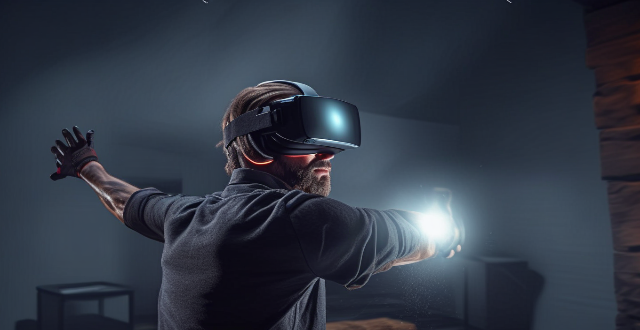
Can virtual reality training improve athlete skills ?
Virtual reality (VR) technology has been increasingly utilized in sports training, raising the question of whether it can improve athlete skills. The answer depends on several factors, including the type of sport and specific skills required. VR platforms offer a novel medium to develop cognitive skills such as concentration and alternating attention. They can be highly beneficial for sports requiring precision and accuracy, providing a controlled environment for repeated practice and immediate feedback. However, VR should not replace traditional physical training entirely but be used as a supplementary tool. Additionally, VR can help athletes mentally prepare for competition by simulating game scenarios and practicing decision-making skills under pressure. The effectiveness of VR training depends on various factors, and its evolution in sports training programs will be interesting to observe as technology advances.

What types of data do sports performance tracking systems collect ?
Sports performance tracking systems collect a variety of data types, including physiological, biomechanical, technical, tactical, and psychological information. This data can help athletes and coaches analyze performance, identify areas for improvement, and make informed decisions about training and competition strategies. Other information such as environmental conditions, equipment used, and nutrition intake may also be collected to provide a comprehensive picture of an athlete's performance.
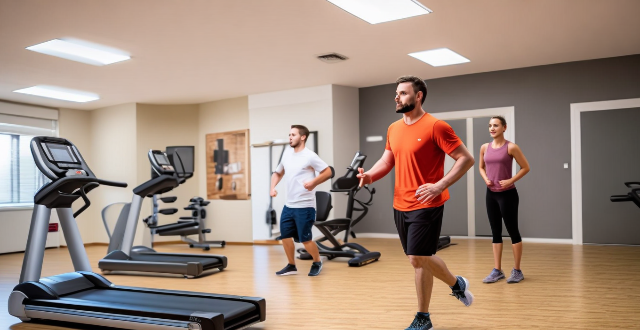
Can AI improve sports performance and athlete safety ?
Artificial Intelligence (AI) is transforming the sports industry by enhancing athletic performance and ensuring athlete safety through personalized gear design, optimized nutrition and training schedules, and injury prevention. AI's predictive capabilities help in preemptive measures against injuries, while wearable technology provides real-time data for monitoring an athlete's physical state. The future of AI in sports holds immense potential for real-time feedback, strategy adjustments, and fair play enforcement.
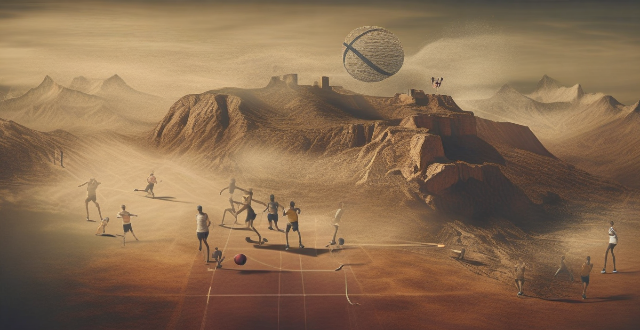
How do athletes balance their commitment to their sport with their religious obligations ?
Athletes can balance their commitment to their sport with their religious obligations by prioritizing, managing time effectively, communicating with others, being flexible, and having a support system.

How do Paralympic athletes train and compete in their respective sports ?
Paralympic athletes, like their Olympic counterparts, undergo rigorous training regimens to compete at the highest level. However, their training and competition processes often involve unique adaptations due to their disabilities. Paralympic sports have a unique system called "classification" which determines how an athlete's impairment affects their performance in a given sport. Athletes are evaluated and placed into different classes based on their functional ability, ensuring fair competition. Many sports use modified equipment designed to accommodate specific impairments, such as prosthetic limbs for amputee athletes or wheelchairs for those with lower limb disabilities. Rules are often adjusted to account for different abilities, ensuring that all athletes can participate effectively. Paralympic athletes engage in strength, endurance, and skill-specific training tailored to their needs and capabilities. They may work with specialized coaches who understand how to maximize performance despite physical limitations. Athletes might need to adapt techniques used by able-bodied athletes to suit their own bodies and equipment. For instance, a wheelchair basketball player will have a different shooting technique compared to a standing player. Just like any high-level athlete, mental preparation is crucial for Paralympians. They may work with sports psychologists to develop strategies for dealing with competition stress and maintaining focus. Before an event, athletes go through warm-up routines specific to their needs. They also ensure that their equipment is properly adjusted and ready for competition. Athletes compete according to the rules of their sport, with classification taken into account during events. They demonstrate not only physical prowess but also strategic thinking and mental toughness. After competing, athletes cool down and recover just like any other athlete. They review their performance with coaches to identify areas for improvement. Paralympians often face additional challenges related to their disabilities, such as pain management or fatigue. They work closely with medical professionals to manage these issues and maintain peak performance. Venues must be accessible and equipped to handle the specific needs of Paralympic athletes. This includes ramps instead of stairs and adequate space for wheelchair users.
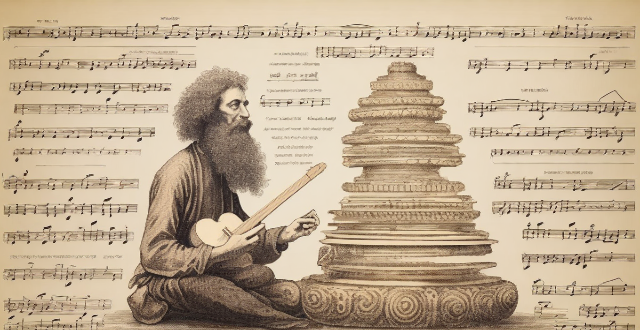
How do athletes use music to prepare for competitions ?
Athletes use music in various ways to prepare for competitions, including creating warm-up playlists, listening to calming music for mental preparation, using pump-up songs for emotional momentum, establishing consistent pre-game rituals, and incorporating music into recovery and relaxation routines. The strategic use of music can enhance focus, energy, and overall readiness for competition.

Can technology be used to enhance fairness in sports competitions ?
The text discusses the role of technology in enhancing fairness in sports competitions. It mentions video replay and review systems, advanced timing systems, biological passports, and wearable technology as some of the ways technology can be used to ensure a level playing field for athletes and promote fair competition. The text concludes that technology has a significant role to play in enhancing fairness in sports competitions and will continue to evolve to promote fair competition and preserve the integrity of sports worldwide.

What role should interscholastic competition play in the educational experience ?
Interscholastic competition, including school sports and academic contests, is crucial for students' physical fitness, intellectual growth, and life skills development. It promotes health, skill development, academic achievement, critical thinking, teamwork, leadership, and resilience. Participating in these activities helps students develop transferable skills that are beneficial in various professions and life situations. Schools should continue supporting interscholastic competition as an essential part of the educational experience.
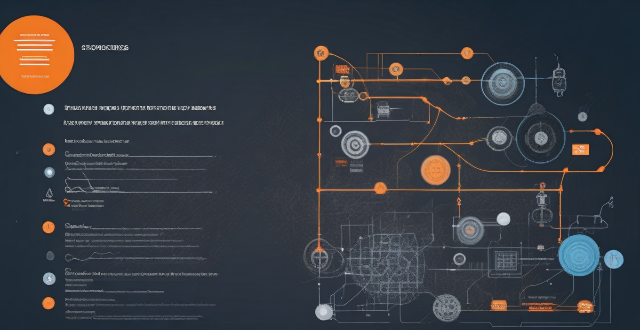
How can athletes manage pre-game nerves and anxiety ?
Pre-game nerves and anxiety are common for athletes but can be managed through various strategies, including mindfulness techniques, physical preparation, mental strategies, support systems, and practice. These methods help athletes perform at their best by transforming nervous energy into focus and drive for success.

How do high-tech training facilities contribute to athlete development and recovery ?
High-tech training facilities contribute to athlete development and recovery by providing advanced equipment, technologies, and personalized programs. These resources help improve performance, prevent injuries, and facilitate efficient recovery.

How does climate change influence resource competition and its impact on international relations ?
Climate change is significantly impacting resource competition and international relations by altering the availability and distribution of natural resources like water, food, and energy. This results in increased competition among nations for these resources, affecting economic systems, political structures, and global stability. Water scarcity due to changing precipitation patterns is causing conflicts, especially in regions sharing rivers or aquifers. Changes in temperature and rainfall patterns are affecting food production, leading to increased import dependency and potential conflicts over limited resources. Energy resource competition is shifting towards renewables due to climate change impacts on fossil fuels. Countries are engaging in mitigation and adaptation efforts through international agreements, technology transfer, and disaster risk reduction. While climate change presents challenges, it also offers opportunities for global cooperation in addressing this common threat.

What is the role of biometric monitoring in athlete health and fitness ?
Biometric monitoring is a valuable tool for athletes to optimize their performance, recovery, and overall well-being. By collecting and analyzing data related to an individual's physical characteristics, such as heart rate, skin temperature, and body composition, athletes can gain insights into areas where they may need improvement or make adjustments to their training regimen. Biometric monitoring can also help athletes monitor their recovery from workouts and competitions, optimize their training regimens, prevent injuries, and enhance their overall well-being. Overall, biometric monitoring plays a crucial role in athlete health and fitness by providing valuable insights into performance, recovery, training regimens, injury prevention, and overall well-being.
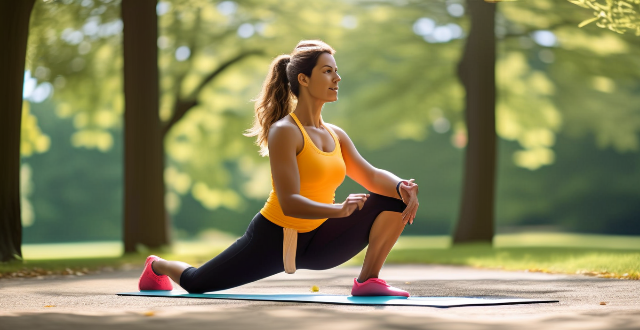
What is the best way to structure a training program for a beginner athlete ?
As an AI assistant, I can provide general guidelines and tips on how to structure a training program for a beginner athlete. Before starting any training program, it is important to set clear goals and objectives. Every training session should start with a warm-up and end with a cool-down period. Strength training should be a key component of any beginner athlete's training program. Cardiovascular training is essential for improving endurance, burning calories, and enhancing overall health. Flexibility and mobility are often overlooked but are crucial for preventing injury, improving performance, and maintaining good posture. Recovery and rest are equally important as training itself. By following these guidelines and seeking guidance from qualified coaches or trainers, beginner athletes can safely and effectively improve their fitness levels and achieve their desired outcomes.

What challenges do sports event organizers face in ensuring fair competition and preventing cheating ?
Organizing a sports event is not an easy task. It requires careful planning, organization, and execution to ensure that the competition is fair and cheating is prevented. Here are some of the challenges that sports event organizers face: 1. Establishing clear rules and regulations that govern the competition. These rules must be fair, comprehensive, and unambiguous to prevent any misunderstanding or misinterpretation. 2. Detecting and preventing cheating, which requires constant vigilance from organizers. Cheating methods evolve with technology, making it challenging for officials to stay up-to-date with the latest techniques and technologies used by cheaters. 3. Maintaining neutrality and impartiality throughout the competition. This involves ensuring no conflicts of interest among officials or judges and preventing bias or discrimination from affecting the outcome of the competition. 4. Managing various logistics and resources required for organizing a sports event. Coordinating schedules for multiple events, participants, officials, and volunteers requires careful planning and coordination. Allocating resources such as venues, equipment, and personnel effectively ensures smooth operation and prevents any delays or disruptions during the event. 5. Addressing unforeseen circumstances that may arise during a sports event. Adverse weather conditions can impact the safety and feasibility of holding an event, requiring contingency plans in place. Medical emergencies can happen at any time during a sports event, so having adequate medical facilities and trained personnel on hand is crucial for dealing with such situations promptly.
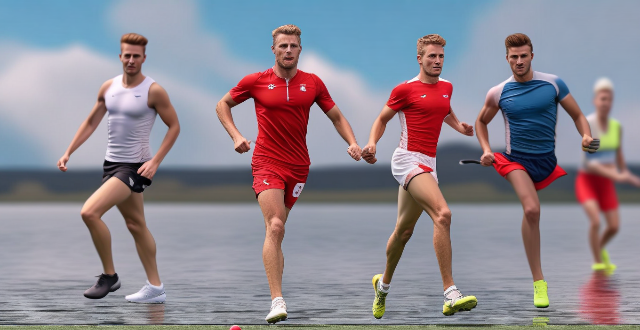
How significant is the role of luck or chance in determining success at high-level sports competitions ?
Luck or chance can play a significant role in determining success at high-level sports competitions. Factors such as injuries, weather conditions, equipment malfunctions, referee decisions, and opponent's mistakes can all contribute to an unexpected outcome. However, skill, training, and strategy are still the most critical factors in determining success in sports.
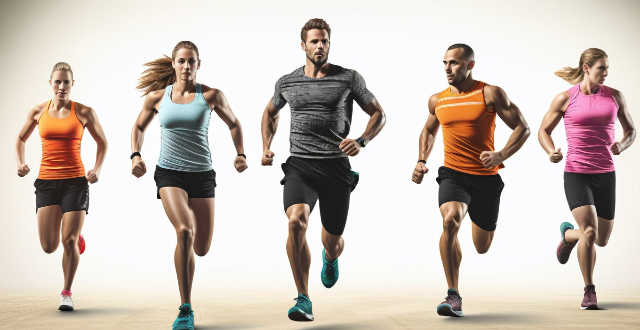
What are the most common metrics used in analyzing sports performance ?
Analyzing sports performance is crucial for athletes, coaches, and teams to improve their skills, strategies, and overall performance. There are several metrics used to evaluate different aspects of sports performance, including time-based metrics such as speed and pace; distance-based metrics such as distance covered and displacement; power-based metrics such as peak power and power endurance; technique-based metrics such as form analysis and biomechanical analysis; physiological metrics such as heart rate and VO2 max; and mental metrics such as mental toughness and motivation levels. These metrics can help athletes and coaches identify areas for improvement and develop effective training programs to enhance performance.

What are the consequences for athletes who engage in unethical behavior during competitions ?
Consequences for Athletes Engaging in Unethical Behavior during Competitions Athletes who engage in unethical behavior during competitions face a range of consequences that can have significant impacts on their personal and professional lives. These consequences include legal and regulatory sanctions, damaged reputation, lost sponsorships, reduced earning potential, stress and anxiety, social isolation, self-esteem issues, legacy, mental health, and career changes. It is essential for athletes to understand the potential consequences of their actions and strive to maintain ethical behavior at all times.

How can I improve my athletic performance through diet
Improving athletic performance through diet involves eating a balanced diet, increasing protein intake, consuming plenty of fruits and vegetables, drinking enough water, avoiding processed foods, eating before training or competition, and considering supplements. A balanced diet includes carbohydrates, proteins, and healthy fats in the right proportions. Protein is essential for building muscle and repairing damaged tissues, while fruits and vegetables are rich in vitamins, minerals, and fiber. Drinking enough water is crucial for staying hydrated during exercise. Avoiding processed foods can prevent harm to your performance and health. Eating before training or competition can provide energy and prevent fatigue. Supplements such as whey protein powder, amino acids, and BCAAs can improve performance but should be taken under the guidance of a nutritionist or doctor.

Can sport monitoring technology help prevent injuries ?
Sport monitoring technology has become increasingly popular in recent years, with many athletes and coaches using it to improve performance and prevent injuries. This technology includes wearable devices such as fitness trackers, heart rate monitors, and GPS tracking systems, as well as more advanced technologies like motion capture systems and force plates. Sport monitoring technology works by collecting data on an athlete's movements, heart rate, and other physiological factors. This data is then analyzed to provide insights into the athlete's performance and identify areas where they may be at risk of injury. By tracking an athlete's movements and physiological factors, sport monitoring technology can identify potential injury risk factors early on, help coaches create personalized training plans for each athlete based on their individual needs and abilities, monitor recovery periods between sessions, and educate athletes and coaches about injury prevention strategies. Overall, there is evidence to suggest that sport monitoring technology can help prevent injuries in several ways. However, it is important to note that no technology can completely eliminate the risk of injury, and proper training, conditioning, and safety measures should always be prioritized.
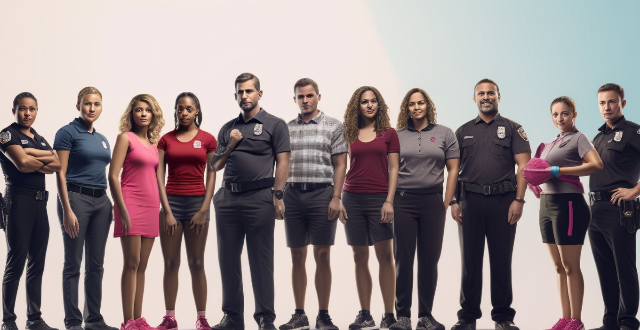
Are there any specific challenges faced by transgender athletes in sports, and how can these be addressed ?
Transgender athletes face unique challenges in sports, includingTransgender athletes face unique challenges in sports, including lack of inclusive policies To address these issues, education and awareness campaigns are needed to promote understanding and acceptance. Inclusive policies and guidelines should be developed to protect the rights of transgender athletes and ensure fair competition. A supportive environment with accessible facilities and resources is crucial for their well-being. Mental health support services tailored to their needs can help them cope with the stress and pressure of being a transgender athlete.
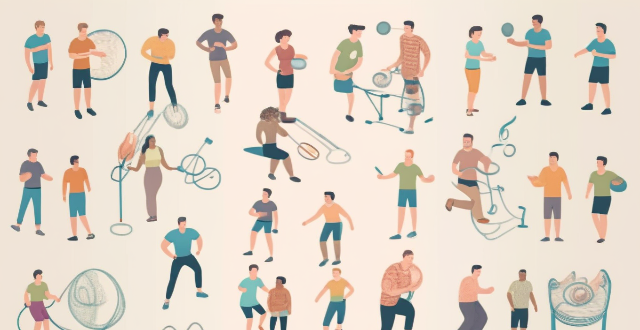
How do athletes cope with the mental stress of competition ?
Athletes employ various strategies to cope with mental stress during competitions, including visualization and imagery, breathing techniques, goal setting, social support, mindfulness and meditation, professional help, and maintaining healthy lifestyle habits. These methods range from mental preparation techniques to seeking professional guidance and engaging in leisure activities for relaxation and enjoyment. By incorporating these strategies into their routines, athletes are better equipped to handle the psychological demands of competition.

How can sports psychology help athletes manage stress and pressure during competitions ?
Sports psychology helps athletes manage stress and pressure during competitions by providing techniques and strategies to improve mental toughness, confidence, and focus. These techniques include goal setting, visualization, breathing exercises, mindfulness and meditation practices, and coping strategies such as problem-solving and emotion regulation. By implementing these tools, athletes can improve their performance and enjoy their sport more fully.

How does sports psychology help in managing pre-game anxiety and nervousness ?
Pre-game anxiety and nervousness are common experiences for athletes, but sports psychology offers strategies to manage these emotions effectively. These include goal setting, relaxation techniques, cognitive restructuring, establishing routines, practicing mindfulness, and leveraging social support. By implementing these tools, athletes can enhance their mental resilience and perform at their best when it matters most.
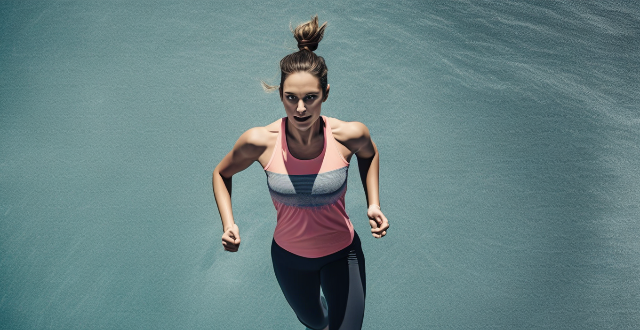
How does AI technology help with injury prevention in sports ?
AI technology is revolutionizing sports injury prevention by providing valuable insights into an athlete's physical condition, performance, and risk factors. Through data analysis, real-time monitoring, biomechanical analysis, recovery support, and injury surveillance, AI technology helps coaches, athletes, and medical professionals take proactive steps to prevent injuries and promote safer sports environments.

What is the impact of cheating on the integrity of sports competitions ?
Cheating in sports competitions has a profound impact on the integrity of the games. It undermines the fairness and equality that are fundamental to the spirit of competition. The various ways in which cheating affects the integrity of sports competitions include loss of trust and credibility, unfair advantage for cheating athletes or teams, harm to clean athletes, negative impact on young athletes, and damage to the reputation of the sport. To preserve the spirit of competition and ensure fair play, it is crucial for sports organizations, athletes, coaches, and fans to work together to prevent and address cheating in sports competitions.
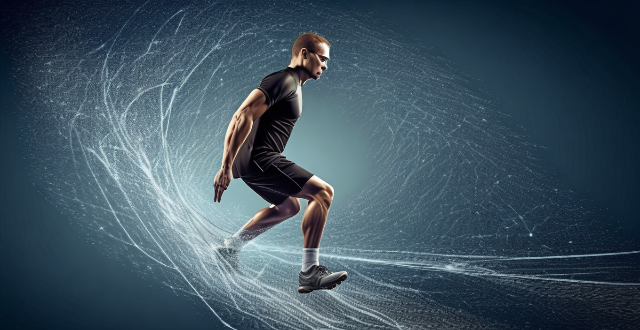
How is GPS used in sports monitoring and analysis ?
GPS technology has transformed sports monitoring and analysis by providing accurate data on athlete movements, speed, distance, and other performance metrics. Its primary uses include tracking athlete movements during training or competition, measuring speed and distance, and analyzing various performance metrics such as heart rate and power output. The benefits of GPS in sports monitoring include improved performance, injury prevention, effective pacing strategies, personalized training plans, and data-driven decision making. Examples of GPS use in sports monitoring include football (soccer), cycling, swimming (with wearable devices instead of GPS), and running.

How can sports medicine help athletes recover from surgery or injury ?
**Sports Medicine: Aiding Athletes in Recovery from Surgery or Injury** The field of sports medicine plays a critical role in helping athletes recover from injuries and surgeries. It involves a multifaceted approach that includes pre-operative management, post-operative care, rehabilitation programs, and facilitating a safe return to sport. Professionals in this area assess the injury, prepare the athlete for surgery, manage pain, provide physical therapy, offer nutritional and psychological support, and create tailored rehabilitation programs focusing on functional training, strength building, flexibility, and endurance. The ultimate goal is to ensure the athlete's complete recovery and prevent future injuries.

How do sports psychologists help athletes deal with performance anxiety ?
Sports psychologists use various techniques to help athletes manage performance anxiety, including assessment and goal setting, cognitive behavioral techniques, building mental toughness, establishing routines, fostering social support, and ongoing assessment. These strategies aim to enhance an athlete's mental resilience and enable them to perform optimally under pressure.